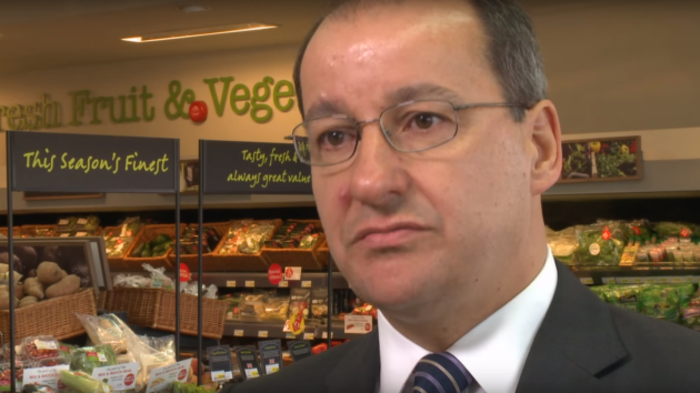The nation's top employer says there's more 'realism' in post-boom Ireland
But Musgrave head Chris Martin wants more investment in both infrastructure and people.
THE HEAD OF Ireland’s biggest private employer says there is a “greater sense of realism” among the business community now than during the economy’s spectacular meltdown.
Musgrave Group CEO Chris Martin, whose company has about 35,000 workers across the country, said there was “growing optimism” across industries based on his experience dealing with many of the nation’s SMEs.
“I think there is, compared to seven years ago, a much greater sense of realism in all that,” he said.
However he said there were also legacy issues still to be resolved around problems like companies raising the finance they needed to grow.
A report from the National Competitiveness Council today flagged the high cost of borrowing in Ireland as “a drag” on small businesses trying to expand.
 Musgrave CEO Chris Martin
Musgrave CEO Chris Martin
Ambitions
Martin was speaking at the Ibec CEO Conference, which carried a theme of ‘bold ambitions’.
He told the audience that ambition had to be backed up with investment – both in infrastructure and people.
“If you come from our world in retail – and retail is responsible for 10% of employment in this country – things have been changing at a phenomenal pace, particularly with the advent of digital.”
Shop owners were being forced to “adopt new ways of looking” and adapt to mobile technologies, he said, which meant there also needed to be investment in the skills people like them needed to remain competitive.
Ibec CEO Danny McCoy, who earlier called the Luas pay dispute “just one example … of the ongoing, exaggerated pay claims” that were emerging as the economy recovered, took aim at the widespread “financial illiteracy” of those who continued complaining about the state of households’ finances.
“At the root, we have a problem in actually living with reality, living with the fact that we are actually a rich society,” he said.






